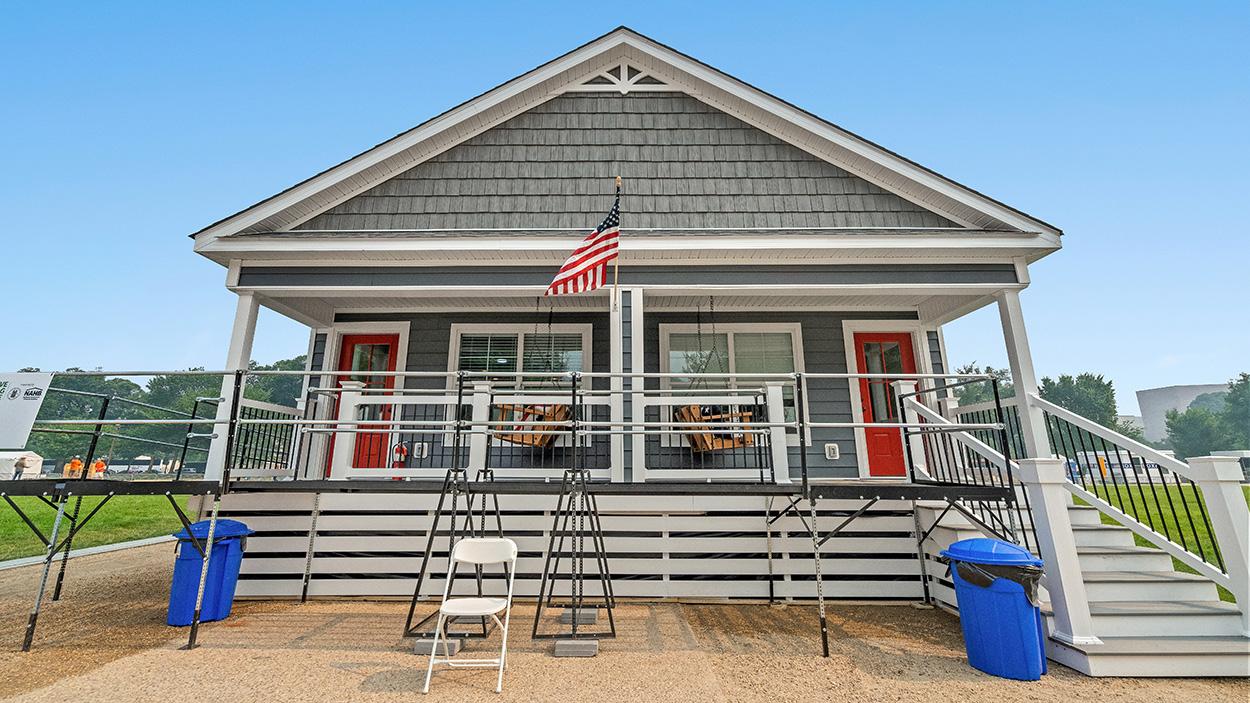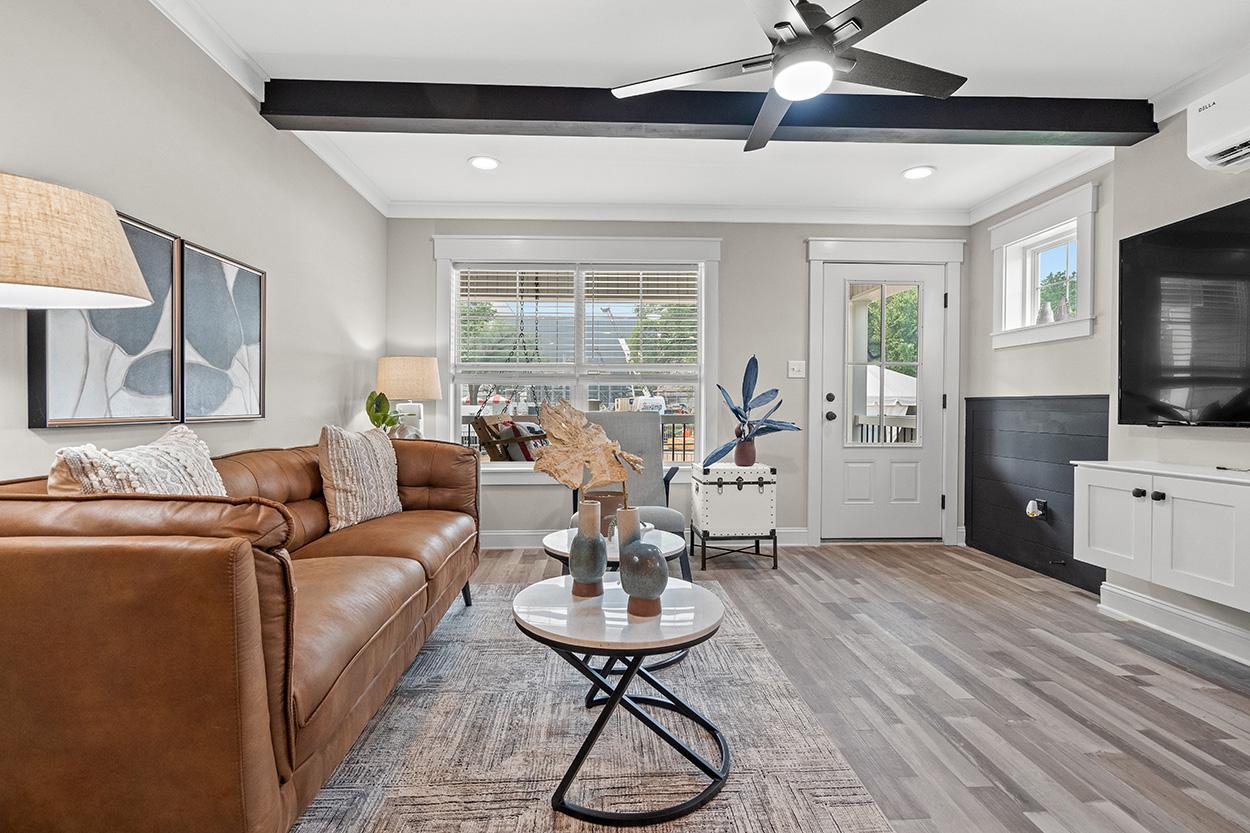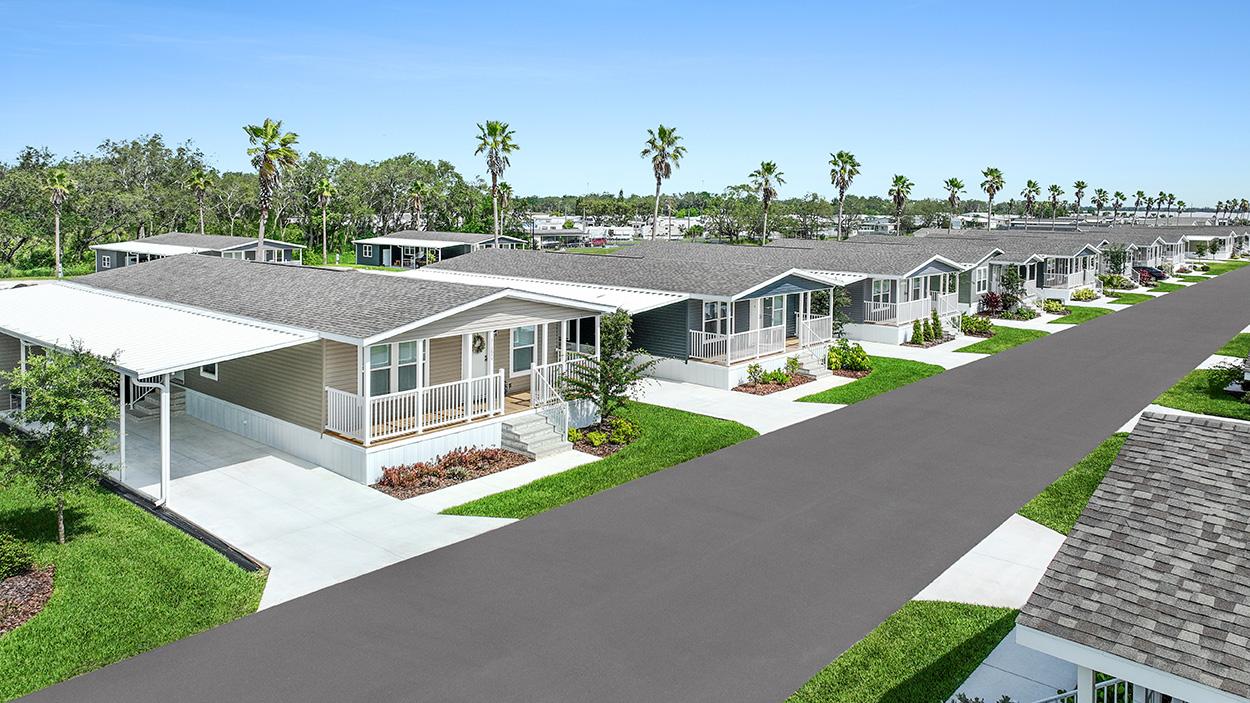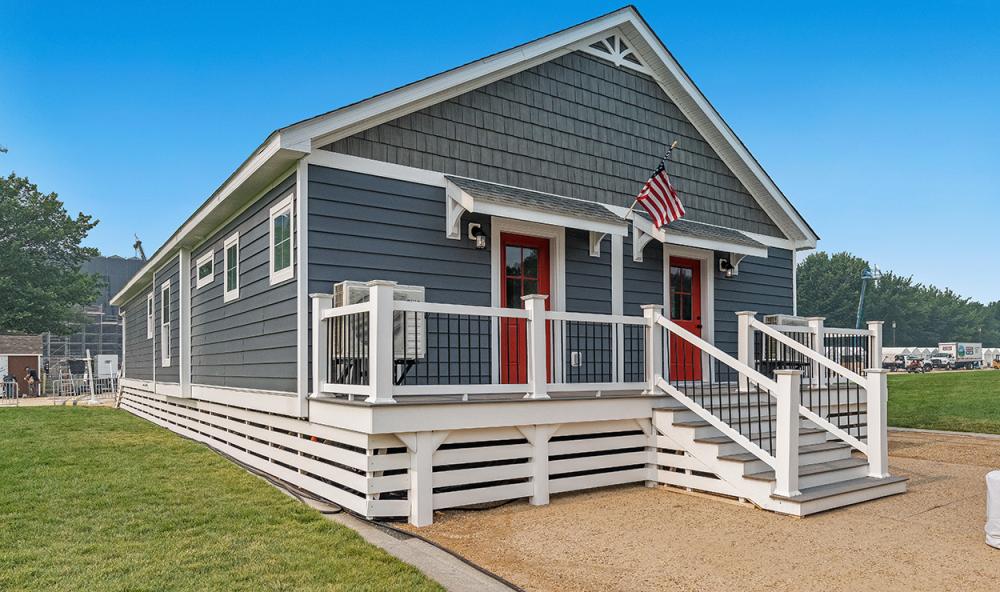
With demand for affordable housing at “incredible” levels, UMH Properties, Inc . (NYSE: UMH, TASE: UMH) President and CEO Sam Landy says the REIT’s ability to fill that need with innovative, low cost, factory-built housing solutions puts the company in a particularly strong position for the foreseeable future.
Landy says UMH is one of the only operators trying to provide housing for those earning around $40,000 to $80,000 a year. “That whole market is wide open to us.”
UMH was recently named as the 2023 Manufactured Housing Institute operator of the year. Landy says the award recognizes action the company is taking to be part of the solution to the affordable housing crisis. That action includes the introduction of a double wide duplex home, which UMH unveiled at last year’s Innovative Housing Showcase in Washington, D.C.
Landy explains that until that point, a single section manufactured box unit was designed to accommodate one family only. UMH, however, presented a single unit approximately 28 feet by 60 feet, divided with a firewall, which turned the traditional single unit into two dwelling units. “It was a major innovation. It was approved by HUD (the Department of Housing and Urban Development) even before the house arrived at the event, so we managed to change their view and allow multifamily use for our product,” Landy says.
The two-family duplex configuration offers renters a lower price point, Landy says, while retaining the same level of quality seen in traditional UMH homes. Duplex offerings are likely to become more common going forward, he adds: “We'll do more of it. Everybody will do more of it.”
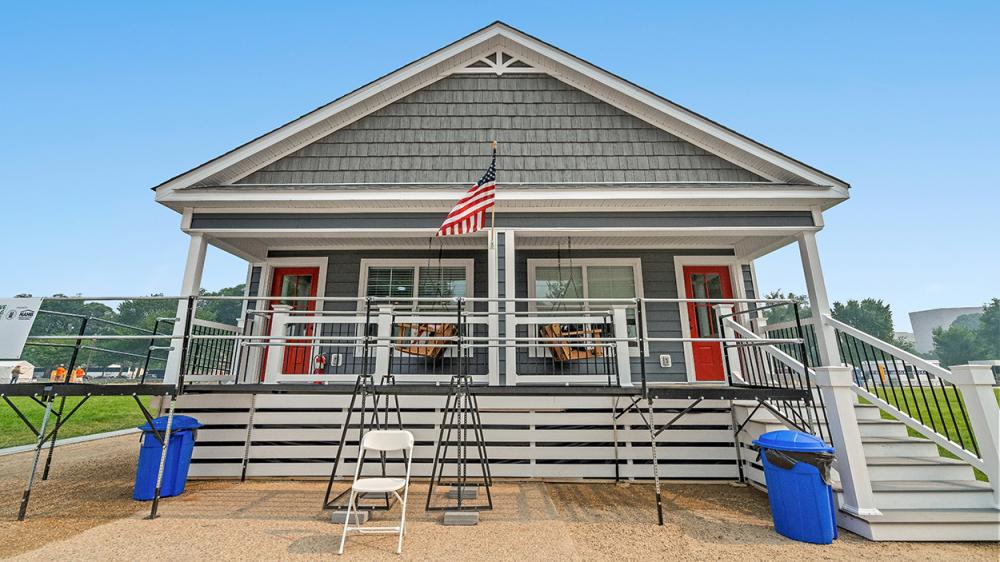
At this year’s Innovative Housing Showcase in June, UMH will be taking another step toward helping to solve the affordable housing crisis when it showcases its “UMH Tiny” duplex line. These factory-built single section units are 16 feet by 70 feet that, when divided by the fire wall, create two, one-bedroom, 500-square-foot dwellings. The units will also feature solar shingles that will help lower utility bills.
Landy says the smaller units, which would rent for about $800 per month, are perfect for downsizing baby boomers, among others. The units would be set on a 5,000 square foot lot so that occupants can garden and have a pet, in addition to having access to all the regular amenities of the UMH community, such as a clubhouse, gym, and dog park.
“We have communities that are more than 95% occupied. In those communities, if a lot becomes vacant, they're ideal for the duplex house because there's adequate demand. There are people looking for affordable housing so if you just put one dwelling unit there, you'd only have one customer. Putting in these duplex homes would satisfy the need for affordable housing for two different family units,” Landy says. And while a duplex configuration won’t work for every existing lot, he adds that they definitely will be an option for any new development going forward.
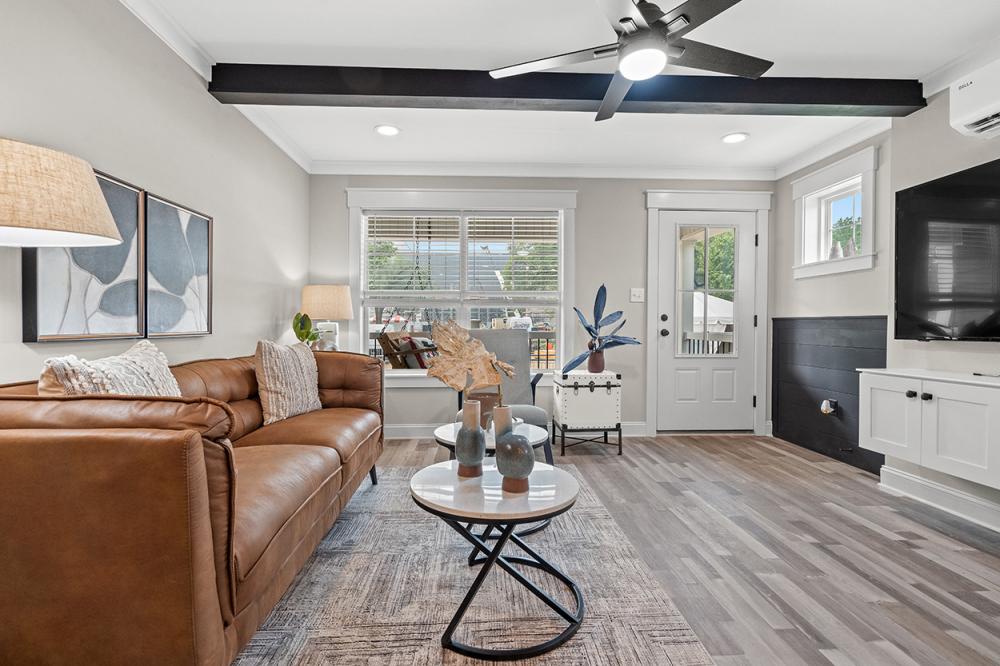
Shift to Renting
UMH is being innovative in other directions as well, namely its recent move to partner with Airbnb and allow potential residents to test the waters at its newest development in Sebring, Florida.
Landy explains that the partnership mirrors the shift in UMH’s business model toward tenants renting manufactured homes rather than purchasing a home and renting the lot. “That shift created a way bigger market because so many people are only looking for a temporary place to live for one to three years,” he says. UMH has rented 10,000 homes since 2011, and typically rents 1,000 homes per year compared with selling about 200 homes.
“People already accept coming into a community with the idea that they're only going to be there for a year, and then they wind up liking it and staying, and maybe they become a long-term renter or maybe they buy the house,” Landy says.
Airbnb, meanwhile, reduces that commitment even further, according to Landy. He says the partnership has been “very successful” in Sebring, and UMH is looking to introduce it in other locations, including Waterfalls Village, south of Buffalo, New York, and elsewhere in the state. Landy says such locations would be particularly appealing for residents looking to relocate during the long hot summers in southern states. The Airbnb platform allows them to try out a community on a short-term basis before committing to a lease, he says.
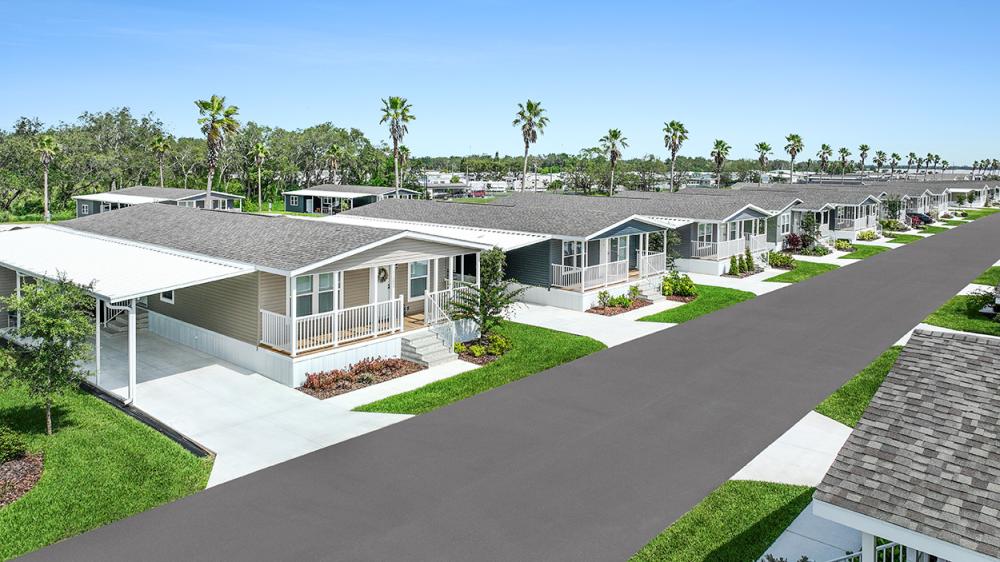
Sources of Future Growth
Landy says that UMH’s waiting lists, on top of the 10,000 units it currently rents and the 4-million-unit shortage of affordable housing all point to the need to do a lot more. “The question becomes, how do we do it without negatively impacting earnings?”
One way UMH is tackling that is through its joint venture with Nuveen, which has already resulted in the development of two manufactured housing communities in Florida, with another under construction in Pennsylvania. UMH is a 40% partner in the JV, receives management fees from Nuveen, and has the first option to purchase the property once the joint venture decides to sell.
UMH has also created an opportunity zone fund to create homes in economically or demographically distressed areas, Landy explains. UMH currently owns two communities in Georgia and South Carolina through the fund.
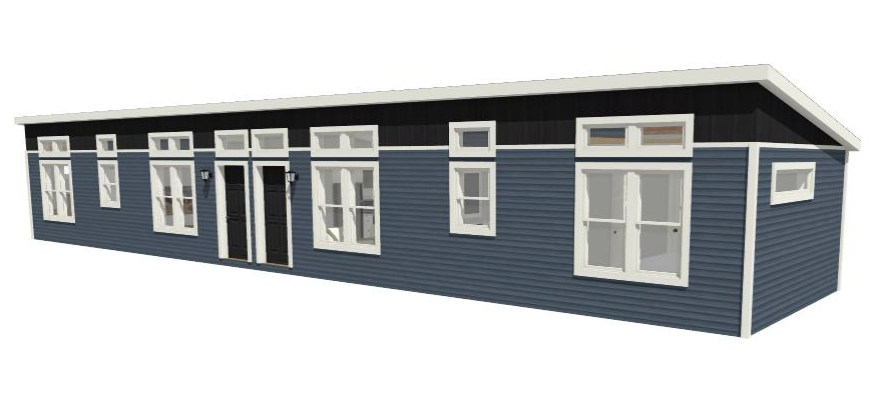
“Opportunity zones will allow us to develop and rehabilitate more communities,” Landy says. To that end, UMH has been actively working with Sen. Cory Booker (D-N.J.) and Sen. Tim Scott (R-S.C.) to advance legislation that would ensure that any investment in affordable manufactured housing in an opportunity zone held for 10 years would be capital gains tax exempt. “We've been working on it quite a bit and believe we have bipartisan support so that when the government again looks at the tax laws, this might get passed,” he adds.
Other avenues for growth come from UMH’s 2,100 acres of vacant land holdings. One option for this land is solar installations, or self-storage facilities, Landy says. He adds that UMH constantly assesses its vacant land to determine its highest and best use. For instance, the REIT owns vacant land adjacent to the Trout National – The Reserve golf course under construction in Vineland, New Jersey. “Maybe we’ll be able to joint venture that land with a major home builder. We’re working on that but nothing’s complete at this point,” he notes.
With its 55-year history of providing affordable, quality manufactured housing, UMH has a long track record of success and plenty to focus on in the years ahead. “We're doing what every business wants to do, which is to be the low-cost producer of a product that’s in incredible demand. Affordable factory-built homes for sale or rent is that product, and we're very proud to be a part of it,” Landy says.
